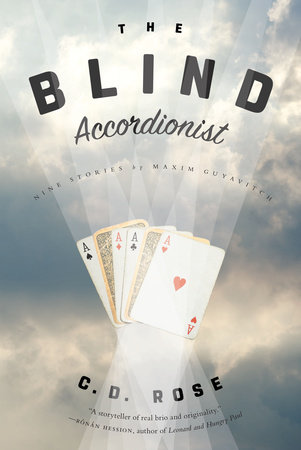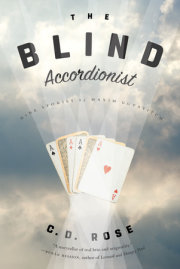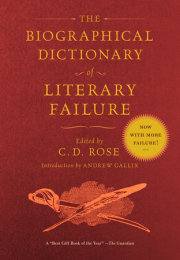The Card Players Christmas had passed, and though the bottles of pear champagne had been opened and drunk, January was reluctant to arrive. Snow, ice, and frost had slowed not only passage into or out of the town, but the very days themselves. At this sink of the year, the cold could crack bones.
These days—when the light was starting to fight back but the darkness still won—inspired little desire to celebrate; everyone waited for the year to show itself before welcoming it. Beginnings to the year are rarely auspicious—it is only humanity, after all, that has chosen to mark them thus. Nature cares little, as it has neither ending nor beginning.
Some mornings—like this one—the very air seemed ice itself, each breath enough to freeze the tissue that lined a man’s lungs. The light hung ashen and sluggish, thick and slow. The river that curled around the town had grown solid enough to build a railway on. Ice ruled the land.
And yet, this gelid day had been warmed by a rumour stewing, softening the bite of the chill and perfuming the town with its potent smell of possibility.
The Marquis went out at five, as the Marquis did, but today Eva and Ada had listened carefully, knowing the soft thud of each footfall, the creak of every floorboard, and the scrape of every opening drawer well enough to be able to envision him carefully trimming his moustache, slipping the small compact mirror into his right glove, then choosing his shiniest shoes to wear under his felt overboots. He came down (they scurried), then ate nothing but a slice of black bread with white cheese and requested only a light broth for supper on his return.
The rumour was true.
Tonight, there was to be a game.
Ada and Eva watched the Marquis head down the path and, once convinced he was out of eye and earshot, ran upstairs to change.
"The red?” asked Eva.
“No, the green,” replied Ada.
"The fox fur?”
"The sable.”
“Shoes?’
“Boots.”
Once painted, shod, coated, scarved, and furred, they opened their front door.
“Brass monkey,” said Eva.
“Frog’s tail,” said Ada.
"The Devil’s shoulder,” said Eva.
“Witch’s tit,” said Ada, and they set out.
They passed the cinnamon shop and the coral merchant, the seller of tallow candles and the importer of damasks. The baker had begun selling off the morning’s now-stale loaves, the printer had hushed his press. Behind the banked-up snow and the spaces of the silence, the rumour had taken flesh, begun to crawl, then to walk as fast as the small crowd now gathering around Eva and Ada, following the Marquis at a distance ample enough to consider themselves unseen. Peter and Johann cracked their knuckles, ready to pick pockets; the cartographer rolled his maps; Grasso carried up bottles of pear brandy from the cellar and stoked the fires. In the back room of the Golden Lion, a man sat with his notebook, frantically trying to record everything that was happening—everything, that is, as far as he knew or understood it, and quite possibly just making a lot of it up.
The town had no railway, but its arrival had once been promised, and in anticipation of that day a hotel had been built and popularly named the Station Hotel, and it was there, at this very moment, that a man with hunched shoulders and a bent nose wearing a stiff black suit and an unfashionable, wing-collared shirt, neither warm enough for the scouringly cold weather, walked down the stairs, across the lobby, and onto the street.
Even though evening was already cowling the narrow streets, the light seemed unexpected to him, and from his breast pocket he produced a pair of dark-tinted, oval-lensed glasses, which he carefully rested on the bridge of his nose and would leave there for the rest of the evening.
From behind these glasses, he looked around a moment; then he struck out, his boots clacking on the stone flags, then thudding on the board pavement as he turned off the square and made decisively for the knot of old streets in the town centre. On the corner where the alleys untangled and the main street began, he saw a group of people huddled in a close circle. Believing them to be warming their hands at a fire and now himself feeling the cold, he walked over to join them, but as he grew closer, the small crowd dispersed like leaves floating in a teacup, and he discovered there was no fire, and that they were gathered around nothing at all.
He feigned composure, adjusted his jacket against the cold, and carried on his way, vaguely aware of the crowd reforming behind him. The crowd, indeed, turned their heads to observe his progress. They muttered to themselves and nodded to each other. It was true: He was making for the Golden Lion. Not only was there to be a game this evening, the Galician had come to play.
The Marquis was the first at table. The Marquis was always the first at table. There was no reason for this, no rule except the unwritten one: if the Marquis wasn’t first at table, the evening’s game couldn’t begin. As the Marquis took his seat, removing his overcoat and felt boots, the Galician was making his way down Golden Lion Street. As the Marquis broke a fresh pack of cards, the Galician was heaving open the heavy door into the saloon and pulling back the insulating curtain behind it. As the Marquis ordered a pear brandy, the Galician was brushing snow from his unsuitable shoes. As the Marquis sipped his brandy, the Galician walked into the back room of the Golden Lion Inn.
The game could begin.
The crowd swelled and bobbed. Ada and Eva were already there. Although they had left after the Marquis, their skill in navigating the slippery roads matched with their intention not to miss a second of the evening’s adventure and led them to arrive before the Marquis. Despite the external chill, the fierce stove soon made the room uncomfortably hot, and many of the women removed their furs as more people (Peter and Johann, the cartographer’s wife, the cinnamon seller) also pushed their way into the back room of the inn. Klug even brought the dog who he swore could talk, though no one had ever heard it do so. Two men who have no part in the story stood shoulder to shoulder in matching grey overcoats.
A chair was found for their visitor, and the crowd, anxious to know more about the newcomer, attempted to engage him in conversation.
“Have you visited our town before?” they asked him, but the Galician shook his head.
“Not that I remember,” he replied.
“How do you know of the game?” they asked.
“Everyone knows about the game,” he replied. No one asked who “everyone” was, each of them believing it to be themselves, and indeed, they did all know about the game, even if they did not know quite where it had come from.
The game, some said, was part of the Trick-Taking family, related to Euchre; similar, in its way, to Skat, Clabber, or Juckerspiel. Others claimed it was a branch of the Cuckoo group of Draw-and-Discard, and more akin to Bester Bube or Krypkasino, while others saw it as a piece of Schafkopf, like Spitzer or Kierki, or even a Partition game, like Chor Voli or Hazari. Still others considered it a variant of the classic Vying games, a distant cousin of Poker, Brag, Bouillotte, or Ferbli. The
chemin de fer variation of Baccarat was also often cited. Discussions regarding the game’s ancestry were as lengthy, complex, and passionate as the game itself. There was no right, no wrong, no reason.
No one knew. The game was what it was.
Copyright © 2021 by C.D. Rose. All rights reserved. No part of this excerpt may be reproduced or reprinted without permission in writing from the publisher.







